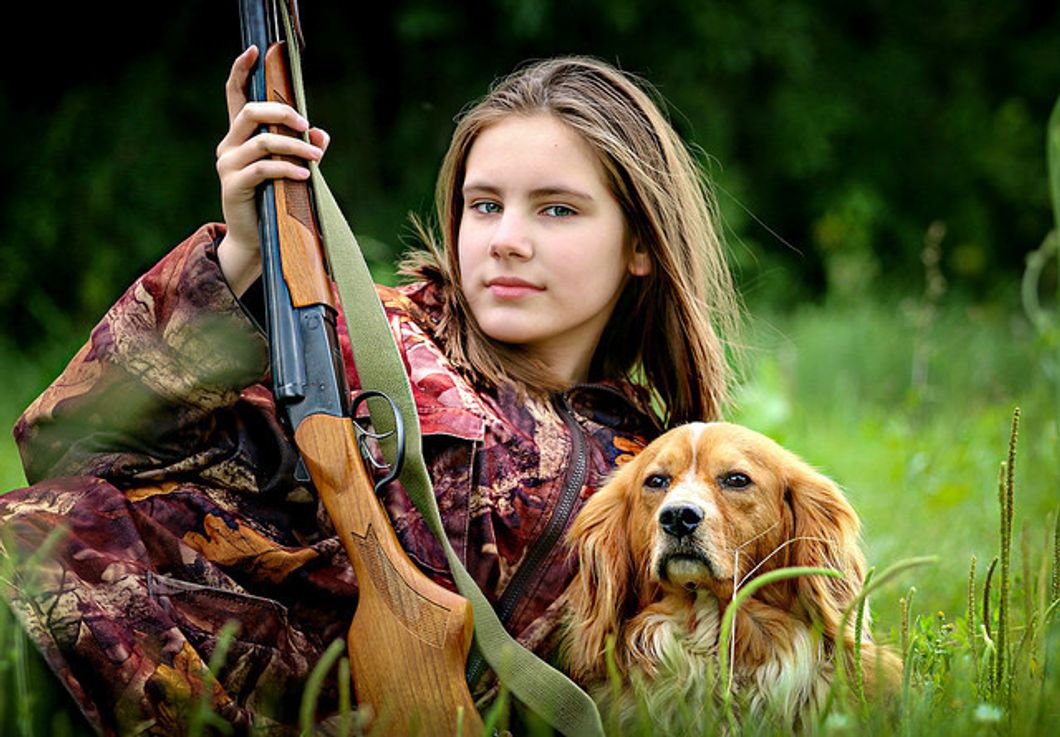I want to start this off by saying I do not support hunting for sport or "trophy hunting." I don't support people taking selfies with dead animals and a smile on their face. I personally find that behavior to be disrespectful and disturbing.
However, I do fully support hunting for food. I support it because I know people will never stop eating meat completely, so what we should focus on is encouraging those who are unwilling to stop to explore more ethical and sustainable alternatives to buying meat at the grocery store. Hunting is one of those alternatives.
Hunting vs factory farming
Personally, I would never go hunting. I don't eat animals and I don't see the appeal in eating them.
However, I think if people are going to eat meat, they should hunt it themselves. Hunting is a more sustainable alternative to factory farming, because it doesn't involve contributing to mass deforestation by occupying thousands of acres of land. In fact, cattle production is the largest agricultural cause of environmental air pollution and deforestation. By producing less livestock and hunting instead, we can start to reverse the direction that modern agriculture is going.
Of course, some may argue that hunting can't sustain the population's current meat demand and that it will lead to species extinction. However, there are environmental laws that protect against overhunting, and the great amount of effort needed to kill and prepare meat will likely lower the country's meat consumption as a whole. It's no surprise that in developed countries we consume way too much meat, because we have it already packaged for us at the grocery store. By encouraging people to hunt instead, you're lowering the level of convenience which will therefore reduce meat consumption.
Not to mention, hunting at least allows animals to live their lives in freedom rather than being held in cramped, cruel conditions their entire lives. I would much rather people eat animals that got to run free and experience life than meat that came from animals who knew nothing but fear and suffering.
Hunting and biodiversity
Hunting, on the other hand, doesn't disrupt animal's natural habitat; and it can also help increase biodiversity. For example, many hunting laws restrict what species of animal can be hunted. They often forbid hunters from hunting under populated species and encourage them to hunt overrun species. Many hunting events and organizations are also affiliated with wildlife conservation organizations, and they often donate a lot of their earnings to conservation efforts.
By hunting overrun species, hunters are actually protecting biodiversity. The deer population is overrun in many places, and this can cause overgrazing, which means the deer can destroy shrubbery and plant life in the area; making it inhabitable to smaller animals and birds. Overpopulation also leads to endangerment or extinction of certain plant life in a given area, because deer often prefer to eat things like sugar maple or yellow birch saplings, and eventually the population of these plants suffers from being over-eaten while other plants take over.
Since deer are natural prey of wolves, cougars, and bears; an overpopulation of deer can also lead to an overpopulation of their predators in a given area. This can lead to other species that these predators prey on becoming endangered, and it can also create conflict between humans and animals in suburban areas. An area that has a high population of wolves, for example, can potentially be unsafe for humans as wolves have been known to prey on children and pets.
While I wouldn't kill animals because of my personal morals, I believe everyone has the right to their own diet and I don't expect humans to just stop eating meat after eating it for thousands of years. Instead of shaming meat-eaters as vegetarians and vegans, we should serve as a helping hand to anyone who is thinking of becoming vegan or vegetarian. We should spread the benefits of cutting out meat. When someone decides to continue eating meat, instead of shaming them, we should educate them on the most ethical ways to eat meat.




 Energetic dance performance under the spotlight.
Energetic dance performance under the spotlight. Taylor Swift in a purple coat, captivating the crowd on stage.
Taylor Swift in a purple coat, captivating the crowd on stage. Taylor Swift shines on stage in a sparkling outfit and boots.
Taylor Swift shines on stage in a sparkling outfit and boots. Taylor Swift and Phoebe Bridgers sharing a joyful duet on stage.
Taylor Swift and Phoebe Bridgers sharing a joyful duet on stage.













